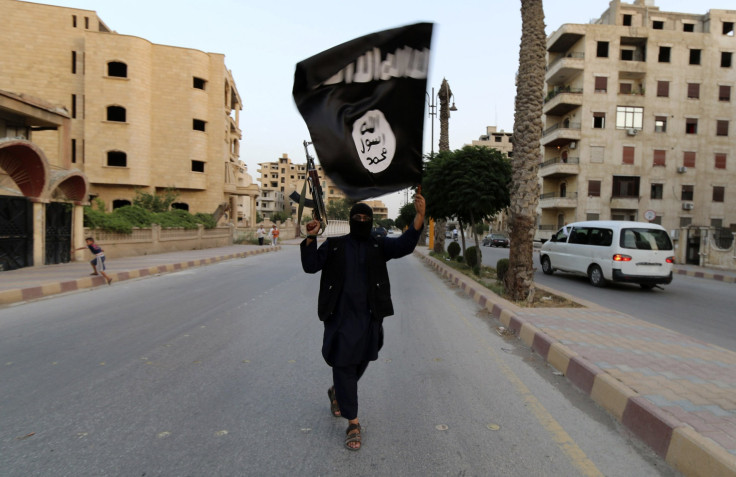Muslim World Reacts To ISIS Brutal Tactics, Beheading Of US Journalist James Foley

After Sunni militants with the Islamic State, formerly known as ISIS, beheaded U.S. journalist James Foley and distributed a graphic video of the killing, Muslim organizations, companies and individuals both in the U.S. and the Middle East decried the group’s brutality, saying ISIS did not represent the religion.
Horrified, disturbed, outraged & heartbroken as a Muslim & as a human being to what happened to James Foley. This is savagery not faith.
— Shiva Balaghi (@SBalaghi) August 20, 2014The U.S. Council of Muslim Organizations, a coalition that leads national and local Muslim organizations, condemned the beheading, saying it “rejects its ideology and actions.”
ISIS has taken over large swaths of land in Syria and Iraq and is attempting to establish an Islamic caliphate. It has used violence to take over key cities in both Syria and Iraq and has engaged in mass executions.
"The terror organization, which is also known by the acronym ISIS, does not speak or act on behalf of the world's 1.5 billion Muslims," the organization said. "In fact, they have killed so many Muslims indiscriminately. Their actions are reprehensible, inhumane and completely contravene all aspects and tenets of Islam."
The Muslim Council of Britain also condemned the murder of Foley and called for united action by Muslims to stop the "poision of extremism" from entering their communities.
British Muslim leaders urge people to contact police if they know identity of man in James Foley video: http://t.co/fbmgzE1cqz
— Reuters Top News (@Reuters) August 21, 2014ISIS claimed it established its caliphate weeks ago, but it has continued to expel ethnic minorities from their homes in Iraq in an attempt to broaden its influence. ISIS also began targeting and killing Yazidis, a minority population living in the Sinjar Mountains -- one of the reasons the U.S. launched airstrikes in the country.
The ISIS militants in the video that showed Foley’s beheading said they were acting in retaliation for the U.S. bombing their convoys in Iraq.
In the video, an ISIS militant says the U.S. military has “caused casualties among Muslims” with its airstrikes in Iraq -- a statement that so far remains impossible to verify. ISIS, though -- also referred to as "daesh" or "daash" from its Arabic acronym -- has killed hundreds, if not thousands, of Muslims during its siege of Iraqi towns.
Family/friends of James Foley: I'm Muslim & daesh kills my kind too. James was my brother in humanity #RIPJamesFoley pic.twitter.com/C95EqguaJg
- Sajad Jiyad سجاد (@SajadJiyad) August 19, 2014One man in the video says, “You're no longer fighting an insurgency, we are an Islamic army, and a state that has been accepted by large number of Muslims worldwide, so effectively, any aggression towards the Islamic State, is aggression towards Muslims from all walks of life who has accepted the Islamic caliphate as their leadership, so any attempt by you Obama to deny the Muslims their rights of living in safety under the Islamic caliphate will result in the bloodshed of your people."
But ISIS, which wants to govern a large part of the Middle East, does not have the support of the majority of Muslims living in Iraq and Syria. The militant group is not only targeting other ethnic minorities in Iraq, but it is also other Muslims, including Shiites, which make up the majority of the Iraqi population, and Sunnis who defy them.
When International Business Times reported from Iraq during the beginning of the ISIS takeover, it was difficult to get a grasp of how Iraqis felt about the group taking over its towns. The scene was chaotic. Thousands were fleeing to Iraqi Kurdistan, to Erbil and Kirkuk, in fear of the militant group. They had heard rumors that ISIS was brutal and unforgiving.
Many said soldiers with the group did not interact with the communities at first—they just set up bases and raised their black flag.
But as time went on and ISIS began to gain more ground, the group began to impose strict rules, and eventually, weeks later, those rumors that had traveled from Syria became a reality in Iraq. ISIS apparently executed hundreds of former Iraqi soldiers in the town of Tikrit and in July began targeting the Yazidi population.
Vice News gained exclusive access to ISIS in Iraq and Syria and published a four-part series on the militant group and how it governed the territory it had captured. But it is still not known how ISIS would form a government that can garner widespread support. And its leader, Abu Bakr al-Baghdadi, now the caliph of the de-facto ISIS state, has remained largely elusive.
© Copyright IBTimes 2024. All rights reserved.




















